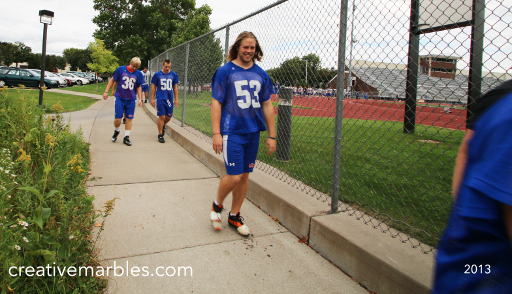 During college football games, the fans, the close referee calls on memorable plans and multi-generational rivalries can all make an impression about a particular college campus. Once a student is building his/her list of colleges for application, watching college football can be an entertaining way to learn more, supplementing college websites and the hundreds of brochures flooding the mailbox.
During college football games, the fans, the close referee calls on memorable plans and multi-generational rivalries can all make an impression about a particular college campus. Once a student is building his/her list of colleges for application, watching college football can be an entertaining way to learn more, supplementing college websites and the hundreds of brochures flooding the mailbox.
Prospective students often wonder about type of people also going to the college, so scanning the crowds and noticing their enthusiasm can tell about the college’s culture and community – especially during games between long standing rivals, like Army vs. Navy or UCLA vs. USC. Listening to the commentators characterize the fans and their cheers can also provide information about the student population. In addition, repeated, annual Bowl appearances can indicate the amount of financial and other institutional support given to the athletic department, telling prospective students about alumni support and connections between the campus and surrounding community. For students looking to join a “community”, plus establish a professional network, a strong alumni group can provide a ready-made connection for internships and future job prospects. Further, in between game play, the NCAA often sponsors infomercial-like videos, featuring players and coaches talking about life outside of the football stadium, with scrolling pictures of the campus – a virtual tour, if you will. Students can learn more about the campus environment, before investing in a tour. Also, a quick review of other colleges in the same athletic conference, like the Pac 12 or Big 10, can generate suggestions of additional colleges for application. Generally, colleges competing in the same conference will have to agree to and meet certain criteria to make game play fair, so each college may share similar cultures and academic values. Also, if football isn’t an interest, ESPN College features other sports, like Cross Country, Soccer and Lacrosse, to learn more about a particular campus.
While the college website is generally the first place students for information, alternative sources, like televised athletic events, can be just as informative and entertaining to boot. The more information a student has about their potential college for application, the more conclusive a decision can be made about even applying. With thousands of choices across the country and continually increasing tuition annually, the extra effort to learn about a campus before applying can help students find the “right” fit both in academic training and for their budgets.
[On a side note: a student we advised a few years ago, used the “watching college football” research method to select colleges for application. He added a twist, as although interested in the game, he was equally focused on watching the marching band; he wanted to drum with a highly talented, college marching band. He selected University of Oregon and has subsequently attended the BCS National Championship Bowl Game in 2011 and the Rose Bowl in 2012, as part of the percussion section. Go Ducks!]



